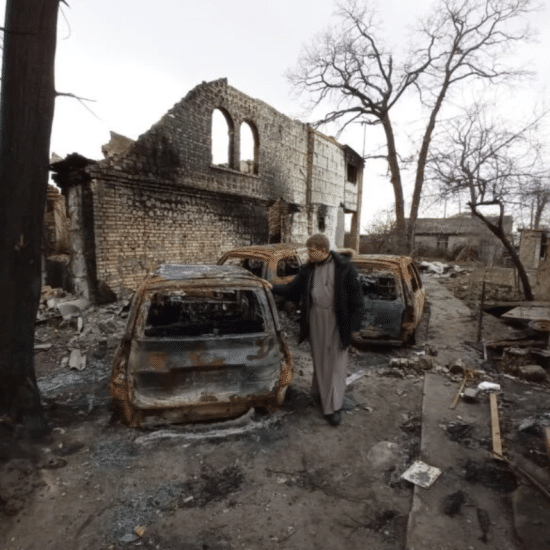Editor’s note: This is the sixth and final installment of a six-part series on the prevention of church conflict. The author is Wade Paris, former pastor and retired director of missions. He also is a former Word&Way trustee.
Despite a pastor’s finest efforts, sometimes fights cannot be avoided.

Wade Paris
Adam was a faithful member of his church. He joined the church from another denomination and was not familiar with all the “rules.” Adam was invited to become a deacon, and the process was well along when his divorce of long ago surfaced. A tumult arose over whether or not a divorced person should be ordained and serve as a deacon.
Upon learning of the difficulty, Adam withdrew; but the controversy continued. There were other divorced persons in the church, and they wondered about their status. Some felt the church should set a policy, i.e. make a rule about divorce. But what would the rule say? “Yes, a divorced person may serve,” or “No, a divorced person cannot serve.”
If the church did make a rule, would it apply to places of service other than that of deacon? Like it or not, the church was innocently cast into a fight in which no one could win.
From time to time a pastor inherits a church fight. The church calls a new pastor, but they are in the midst of conflict. In some instances, the conflict is explained to the prospective pastor. Together they hope the new pastor can lead them to resolution and healing.
At other times the pastor is called without knowing of the church conflict. Indeed, at times the church will say and perhaps assume all is well when it is not. Then the new pastor finds himself in the middle of a church brouhaha.
Sometimes fights are cast upon the pastor, but at other times a pastor can choose not to be a part of a controversy. A wise pastor will think carefully before joining a battle, pondering, “Is this fight worth the cost?” Winning a fight with the decorating committee about the color of the drapes probably is not worth the cost. On the other hand, fighting about skin color, i.e. racial prejudice, is an entirely different matter.
The following are guiding principles for when one must fight:
The pastor should not be part of the problem. Do everything possible to keep the conflict from becoming personal. When the pastor becomes the lightning rod, parishioners have a hard time hearing what the pastor says, even when the pastor is obviously speaking the truth.
When you must fight, fight fair. As stated earlier, the pastor should never take church fights to the pulpit. Doing so destroys morale and solidifies one’s enemies. Taking church fights to the pulpit often puts folk out on a limb and intensifies the conflict.
Some boys were discussing the value of six bits. Sam knew if two bits is a quarter then six bits must be 75 cents. However, his friend Pat said it was 50 cents. Sam desired Pat’s approval and agreed it was 50 cents. Later, Pat realized he was wrong and changed his opinion. However, Sam was now out on a limb and refused to change, even though he knew from the beginning he was wrong.
Of course, it is proper to address moral issues from the pulpit, but they should never be obviously personal. During times of crises, the pastor should weigh his words from the pulpit very closely. People “hear” things in the sermon that the pastor does not intend. Make every effort to avoid this trap.
Attack the issues, not the persons. Personal attacks will always come back to haunt a pastor. A previous installment related the story of Pastor Sauls, who publicly dressed down a deacon, and the deacon died that night. The deacon’s death was caused by a bad heart, but the pastor got the blame.
Personal attacks harm people more than physical attacks. Physical wounds heal, but wounds caused by words linger forever. The ditty “Sticks and stones may break my bones, but words will never hurt me” is wrong. Words hurt most of all. No matter how bitter the opposition, the pastor’s desire must be to heal and help, not harm.
Finally, remember the goal is win/win, resolution and reconciliation — not management of fallout. There are seldom any winners in a church fight.
Epilogue
Conflict in the church might be diminished by teaching the church, or at least the leadership, how to identify the levels of church conflict outlined by Speed Leas and mentioned in the introduction. As a reminder, they are listed briefly below:
Level I: We have a problem to solve — amicably search for answers.
Level II: Disagreement intensifies — a new concern enters: “me.”
Level III: Contest — a win/lose spirit develops, “sides” develop.
Level IV: Fight/flight — participants try to hurt others or drive them away.
Level V: Intractable situations — conflict out of control.
Level II: Disagreement intensifies — a new concern enters: “me.”
Level III: Contest — a win/lose spirit develops, “sides” develop.
Level IV: Fight/flight — participants try to hurt others or drive them away.
Level V: Intractable situations — conflict out of control.
A wise pastor will do his best to keep conflict at Level I.
The entire Conflict Prevention series:





